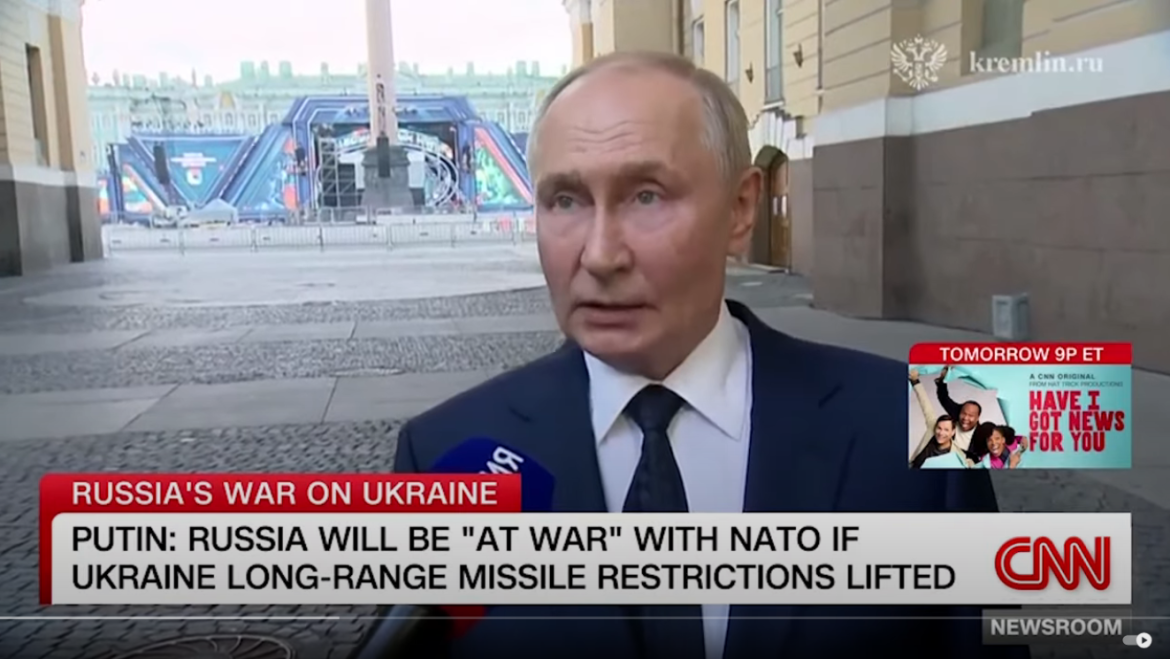As tensions continue to mount in the ongoing Ukraine conflict, Russian President Vladimir Putin issues a stark warning to NATO countries, particularly targeting the United States and its allies. The Russian leader’s comments come on the eve of a crucial meeting between U.S. President Joe Biden and British Prime Minister Keir Starmer in Washington, where the topic of expanded military support for Ukraine is expected to dominate discussions.
In a televised statement, Putin declares that Russia would consider itself “at war” with NATO if Western countries allow Ukraine to use long-range missiles to strike targets deep within Russian territory. “If NATO countries decide to supply such weapons, they will be directly participating in the conflict,” Putin asserts, adding that Russia would respond with “appropriate decisions” to any such escalation.
The Biden administration, along with its NATO allies, has thus far restricted Ukraine’s use of Western-supplied long-range weapons, such as American ATACMS and British Storm Shadows, to targeting Russian positions along the border and only in retaliation to attacks from those regions. However, recent developments suggest a possible shift in this stance.
As President Biden prepares to meet with Prime Minister Starmer, speculation grows about a potential change in policy. The two leaders are expected to discuss allowing Ukraine more latitude in using Western-supplied weapons, potentially permitting strikes on military targets deeper within Russian territory.Secretary of State Antony Blinken’s recent visit to Kyiv, alongside his British counterpart, has further fueled speculation about an evolving Western strategy. Earlier this week, Biden hinted at ongoing deliberations, stating that the U.S. was “working out” the situation.
Ukrainian officials have long advocated for the removal of restrictions on Western-supplied weapons, arguing that the ability to strike deeper into Russian territory would significantly enhance their defensive capabilities. President Volodymyr Zelensky has repeatedly emphasized the need for such capabilities to counter Russian attacks on Ukrainian cities and infrastructure.
The international community watches closely as these developments unfold. NATO Secretary-General Jens Stoltenberg reiterates the alliance’s commitment to supporting Ukraine while avoiding direct confrontation with Russia. Meanwhile, China calls for de-escalation and a return to diplomatic negotiations.
As the conflict enters its third year, the potential policy shift represents a critical juncture in the West’s support for Ukraine. The outcome of the Biden-Starmer meeting could signal a new phase in the conflict, with far-reaching implications for regional stability and international relations.The world now waits to see how the U.S. and its allies will balance their support for Ukraine with the risk of further escalation, all while navigating Putin’s latest red line.



